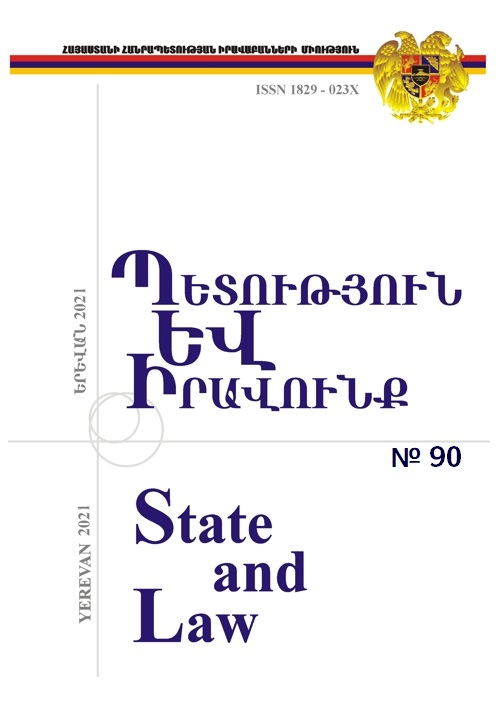THE POWER TO OVERTURN THE JUDICIAL ACT THAT DOES NOT RESOLVE THE MERITS OF THE CASE IN THE CONTEXT OF THE RIGHT TO JUDICIAL REVIEW AND THE EFFECTIVENESS OF JUSTICE
Keywords:
interim judicial act, liabilities of cassation review, reversal of judicial acts, the right to judicial review, efficiency of justiceAbstract
It follows from the analysis of the current criminal procedure regulations that as a result of the review of the judicial act that does not resolve the case on the merits, the RA Court of Cassation is authorized to reject the appeal leaving the judicial act in legal force or making a new judicial act. If there is practically no problem with the interpretation and application of interpretation in relation to the first of the powers of the Court of Cassation in question, then the situation is different in terms of the second power. In particular, according to the interpretation given by the RA Court of Cassation regarding the second power, the issuance of a new judicial act presupposes the exercise of any power that the Court of Cassation has when reviewing the judicial acts resolving the case on the merits, including the reversal of the judicial act. Meanwhile, the position of the RA Constitutional Court on the same issue is that the court conducting the review within the framework of reviewing the judicial acts that do not resolve the case on the merits, in particular while reviewing the lawfulness of detention, is authorized to make a decision to choose or not to choose the detention as a preventive measure without sending the case for a new trial. This solution is also given in the new RA Code of Criminal Procedure.
Considering the issue in the context of balancing of the right to judicial review and the interests of the efficiency of justice, the article concludes that the legislative regulation of the powers of cassation review of judicial acts that do not resolve the merits of the case should include the possibility of overturning the judicial act and sending the case for a new trial. It is another matter that due to the need to make a final court decision as soon as possible as a result of reviewing this type of judicial acts, in practice the exercise of the mentioned authority should be based on the existence of the overriding interest in ensuring the legitimate interests of the individual.
Downloads
Published
Issue
Section
License
Copyright (c) 2021 State and Law

This work is licensed under a Creative Commons Attribution-NonCommercial 4.0 International License.

